- Aug 3, 2024
- --
Ecommerce personalization examples: Enhancing customer experiences with Magnolia
Experience Magnolia in action
Experience Magnolia's key features firsthand in an interactive product tour.
Take a tour nowCustomers now have an unprecedented number of channels to engage with businesses. Ecommerce personalization involves tailoring the online shopping experience for each customer according to their preferences, previous behaviors, and demographic details.
By personalizing the customer journey, businesses can achieve higher conversion rates, increase customer lifetime value, lower cart abandonment rates, and create better opportunities for cross-selling and upselling.
As a DXP, Magnolia facilitates ecommerce personalization by unifying customer data, enabling dynamic website personalization, and providing personalized content and product recommendations. There is no one-size-fits-all solution for ecommerce personalization, but there are ways to simplify your approach and give some power to the marketing team.
Explore real-world examples of companies using Magnolia for ecommerce personalization, including Moo, King of Watersports, Ticino Turismo, and Alior Bank, which have all seen improvements in customer engagement and sales.
In the present-day digital marketplace, businesses are embracing ecommerce personalization to a greater extent, strategically tailoring experiences to accommodate their customers' unique preferences and requirements. By customizing product recommendations, content, and incentives based on customer data, ecommerce personalization aims to create meaningful connections with customers, encompassing every stage of their shopping experience.
In 2019, before the COVID-19 pandemic, McKinsey concluded that digital channels have fundamentally transformed how customers prefer to interact. It is essential to view individual touchpoints through the lens of the complete customer journey.
The pandemic significantly impacted global e-commerce revenues, leading to an additional 19% sales growth in 2020 and a further 22% growth compared to pre-COVID-19 predictions. This demonstrates that customer expectations in the digital realm continue to evolve. Clients now expect their interactions to extend beyond simple transactions; they want businesses to foster genuine connections.
In this article, we will delve into the concept of ecommerce personalization, explore its benefits, and highlight how Magnolia plays a significant role in helping you implement effective personalization strategies. We will also examine real-world examples of how Magnolia has contributed to ecommerce personalization, giving you valuable insights and inspiration. Furthermore, we will discuss the importance of measuring your ecommerce personalization efforts and how you can evaluate the impact of your personalized strategies.
What is ecommerce personalization?
Ecommerce personalization is the process of customizing the online shopping experience for each customer based on their preferences, past behaviors, and demographic information. It includes tailoring product recommendations, website content, email campaigns, promotions, and incentives to match customers' unique needs and interests. This level of personalization extends beyond customer identification and strives to offer relevant and targeted experiences throughout their entire customer journey.
For example, when you visit Amazon's website, you'll often see a section recommending books based on the ones you've viewed or bought.

These personalized book recommendations are generated using algorithms that analyze past purchases, browsing history, and other data points. By suggesting books that align with your interests, Amazon enhances the shopping experience and increases the likelihood of purchasing.
Personalization efforts like these have proven to improve customer relationships and increase customer loyalty by up to 44%.
What are the benefits of personalizing customer experiences?
According to a study by Salesforce, 66% of consumers want businesses to understand their specific requirements and expectations. Customers often feel frustrated when a shopping experience doesn't truly reflect their needs, and up to 91% of shoppers will abandon an online retailer over a poor shopping experience.
Here are some reasons why personalizing your customers' shopping experiences is a good business decision:
Improved conversion rates
Customers who encounter personalized product recommendations and tailored website experiences are likelier to find products they genuinely desire. This boosts conversion rates, as customers feel understood and supported throughout their buying journey.
Higher customer lifetime value
You can cultivate long-term relationships with your customers by consistently providing a wide range of personalized shopping experiences. Satisfied and loyal customers are more likely to make repeat purchases, spend more, and become advocates for your brand, ultimately increasing their lifetime value to your business.
Reduced cart abandonment
Personalization can help address the common issue of cart abandonment. By making targeted promotions through personalized email marketing, offering personalized recommendations, and displaying relevant content throughout the buying journey, you can minimize the likelihood of potential customers abandoning their shopping carts and increase the chances of completing the purchase.
Improved cross-selling and upselling opportunities
Personalization allows you to recommend complementary products or upsell higher-value items based on each customer's preferences and previous purchases. By leveraging personalization techniques, you can improve your marketing strategy, increase the average order value and boost your revenue.
How does Magnolia contribute to ecommerce personalization?
Magnolia is a renowned digital experience platform that empowers your business to deliver personalized customer experiences. By leveraging advanced features and integrations, Magnolia enables your marketing team to implement various personalization strategies effectively. Let's explore some of the ways Magnolia facilitates ecommerce personalization.
Choosing a CMS for the Future of Ecommerce
Learn how headless commerce can help you overcome your everyday challenges in ecommerce and weave together your shop and website seamlessly.
Read nowUnification of customer data
A Customer Data Platform (CDP) helps you gather, organize, and utilize customer data from different touchpoints. This includes customer behavior, preferences, purchase history, and demographic data.
Magnolia offers seamless integration with Segment, a leading CDP, giving you a unified view of your customer data. You can harness these valuable insights within Magnolia to create more relevant and personalized experiences tailored to each customer segment.
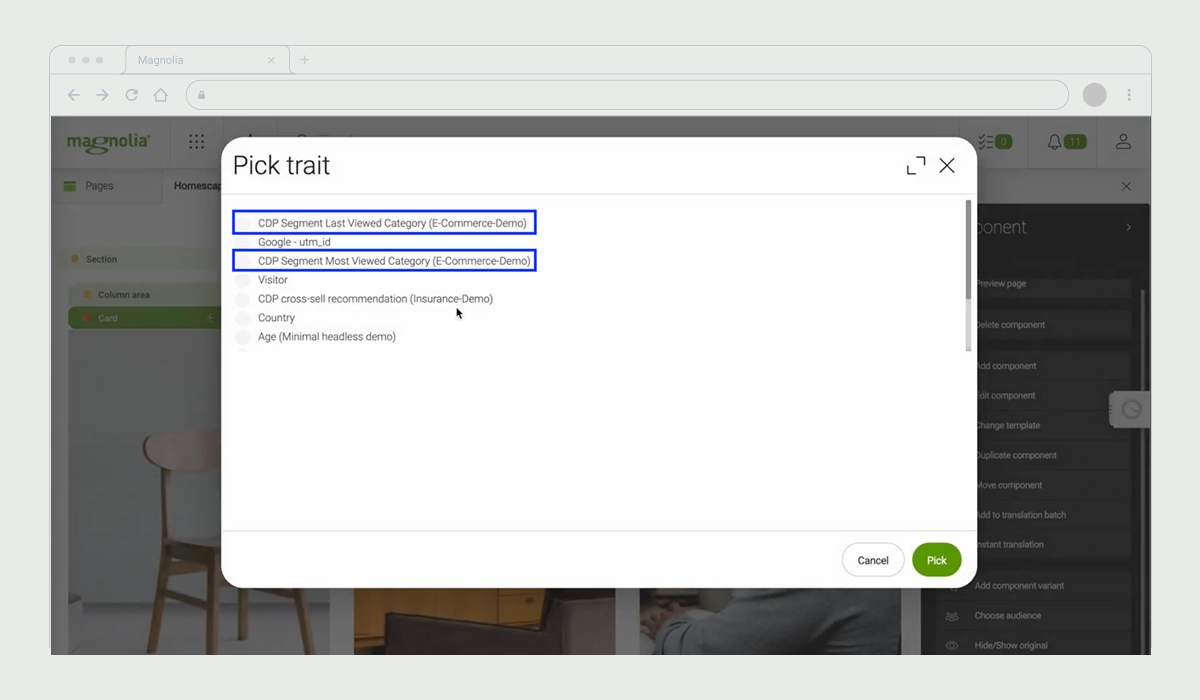
Editors can implement tailored content and experiences based on Segment's insights within Magnolia's unified workflow, and developers can effortlessly implement the integration using a low-code approach, simplifying the process of tracking and collecting customer data for personalization.
Dynamic website personalization
Magnolia contributes significantly to ecommerce personalization by empowering you to implement dynamic website personalization. With Magnolia's powerful WYSIWYG features, you can create and edit different components on your website that display dynamic content based on specific sales campaigns. For example, you can customize a "Special Offer" component to showcase special offers tailored to specific target audiences.
.2024-10-21-13-28-53.png)
Furthermore, Magnolia's Campaign Manager allows you to set up campaigns that determine the content displayed by campaign-managed components on your website. Depending on the campaign you configure in Magnolia, your website will dynamically show different content to align with your campaign objectives.
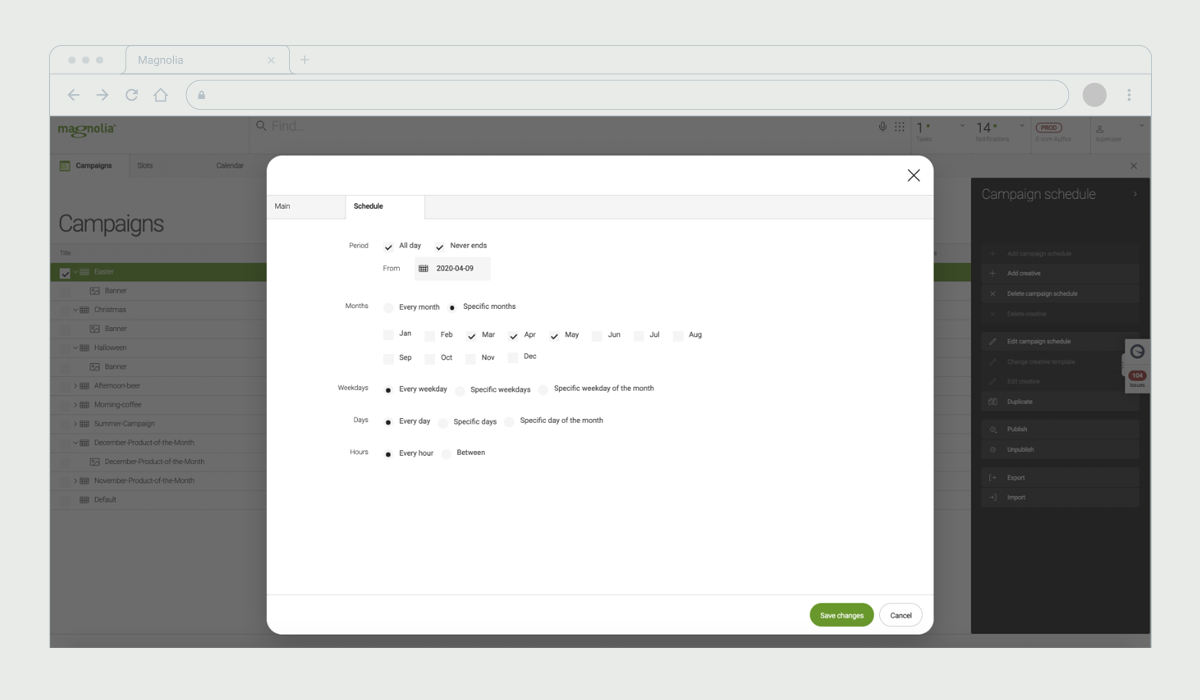
Personalized content and product recommendations
Magnolia offers a range of personalized content and product recommendation features that can significantly benefit your business. By integrating Salesforce Commerce Cloud into Magnolia, you can harness the power of advanced artificial intelligence with Salesforce's Einstein AI to deliver customized product suggestions to your customers in real-time.
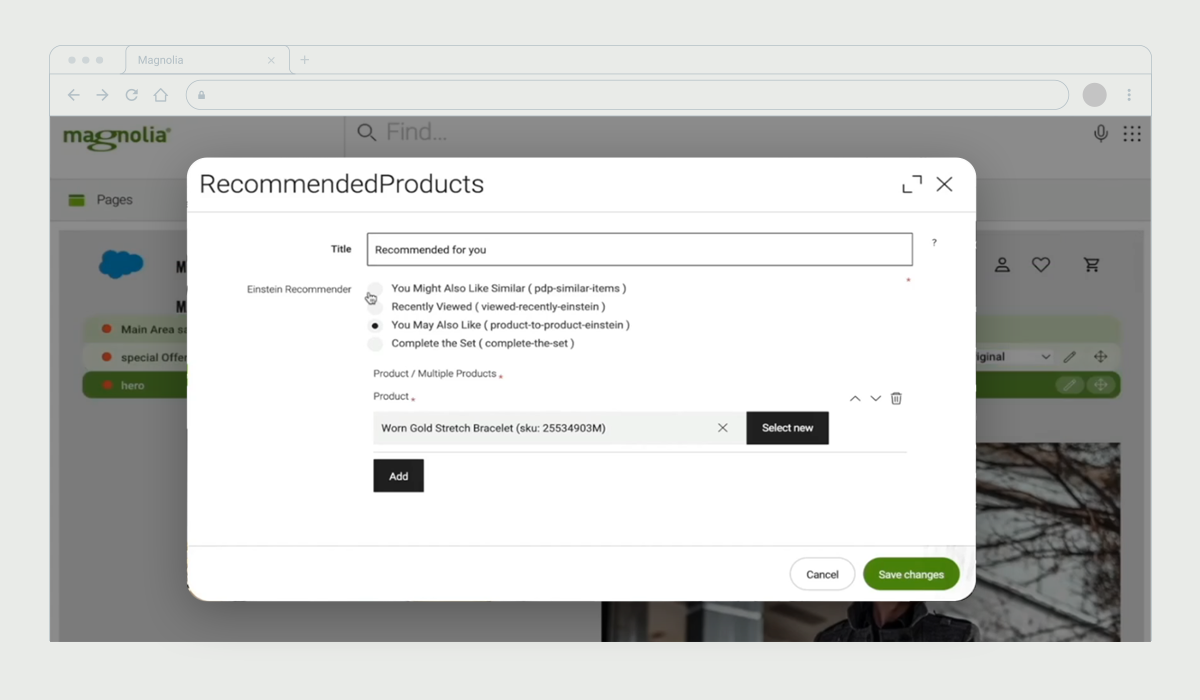
In addition, Magnolia helps you create focal hotspots on your product images. These hotspots can be linked to different products, allowing you to provide an interactive visual experience for your customers.
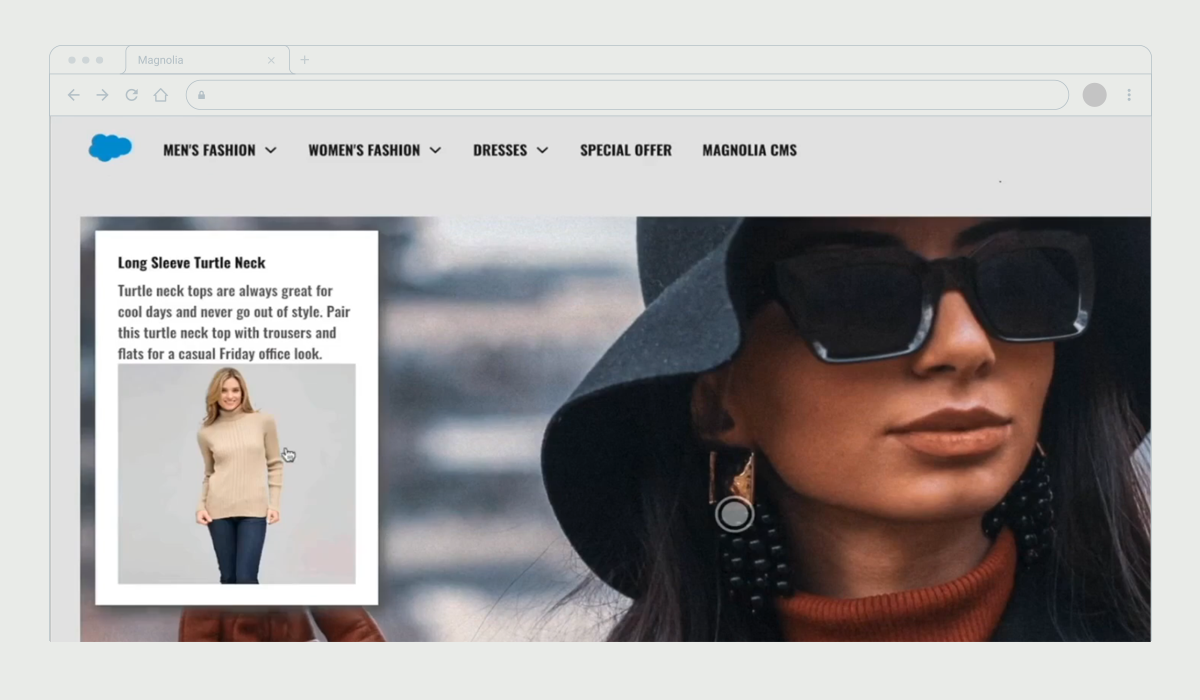
With this feature, you can engage your customers visually and guide them toward specific products or additional information, adding a layer of personalization to your ecommerce store.
Ecommerce personalization examples with Magnolia
Let's explore some real-world examples of how Magnolia has contributed to ecommerce personalization:
Moo
Moo is a UK-based bespoke business stationery company. It has hundreds of thousands of customers globally and delivers ecommerce content in four languages.
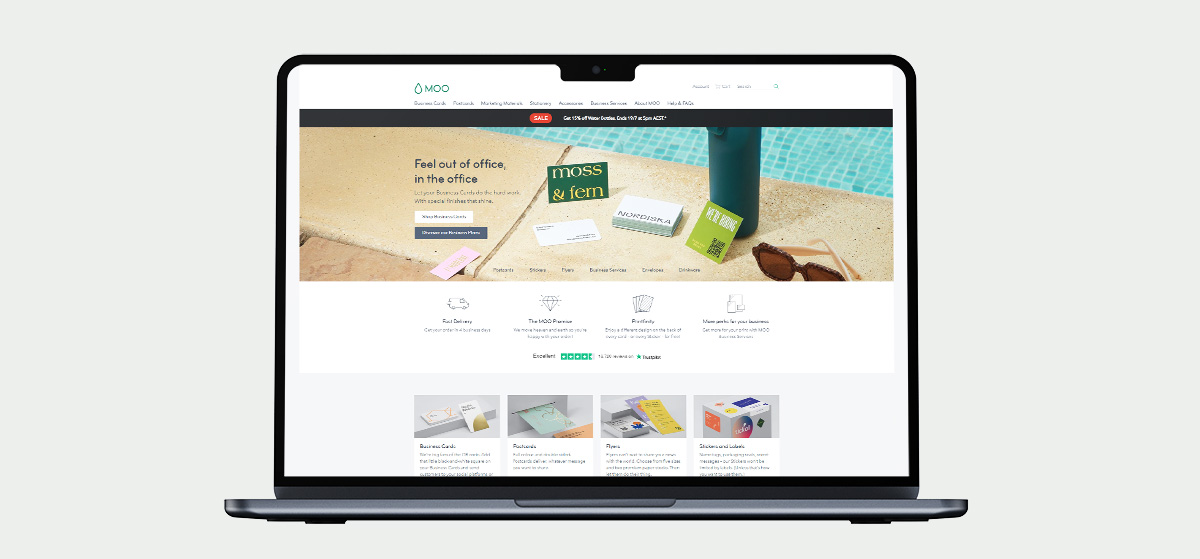
With Magnolia, Moo's marketing team creates and reuses content, generates product variations based on customer preferences, and easily integrates with existing systems to update web content as required. When navigating Moo's homepage, customers can view dynamic content containing relevant deals and products based on their interest.
King of Watersports
King of Watersports is the world's largest kitesurf provider with a global and diverse customer base. To exceed customer expectations, they needed a website that dynamically supports different contexts and focuses on more efficient forms of site optimization.
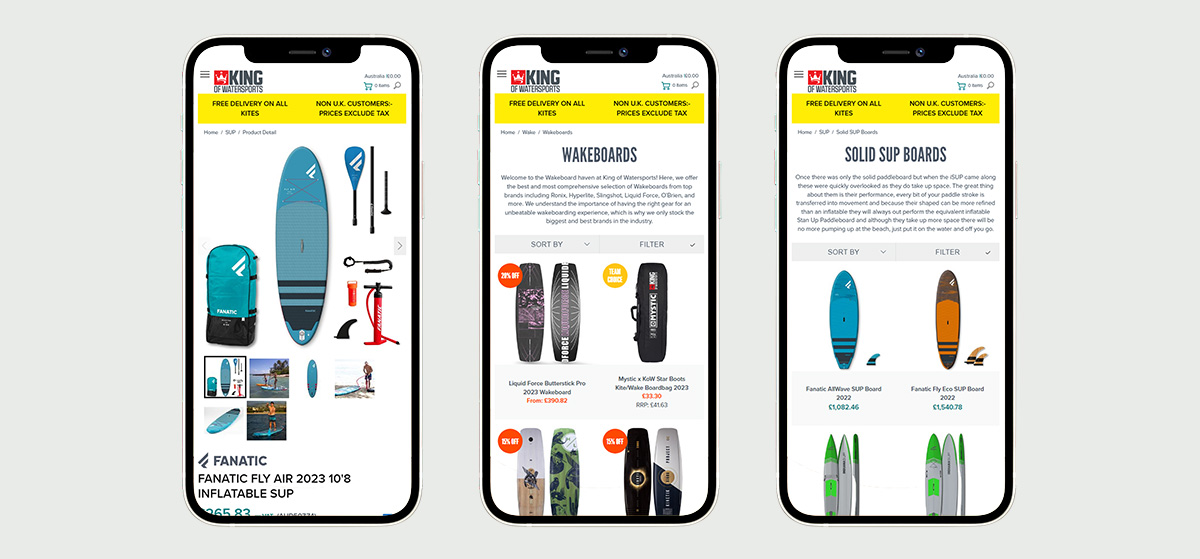
With Magnolia's easy-to-use multi-site features, rich personalization capabilities, and integration with Commercekit, King of Watersports can adjust on-site content, language, and currencies by destination, creating a more tailored user experience.
Ticino
Ticino Turismo provides tourism-related information such as accommodation, entertainment, restaurants, and transport.
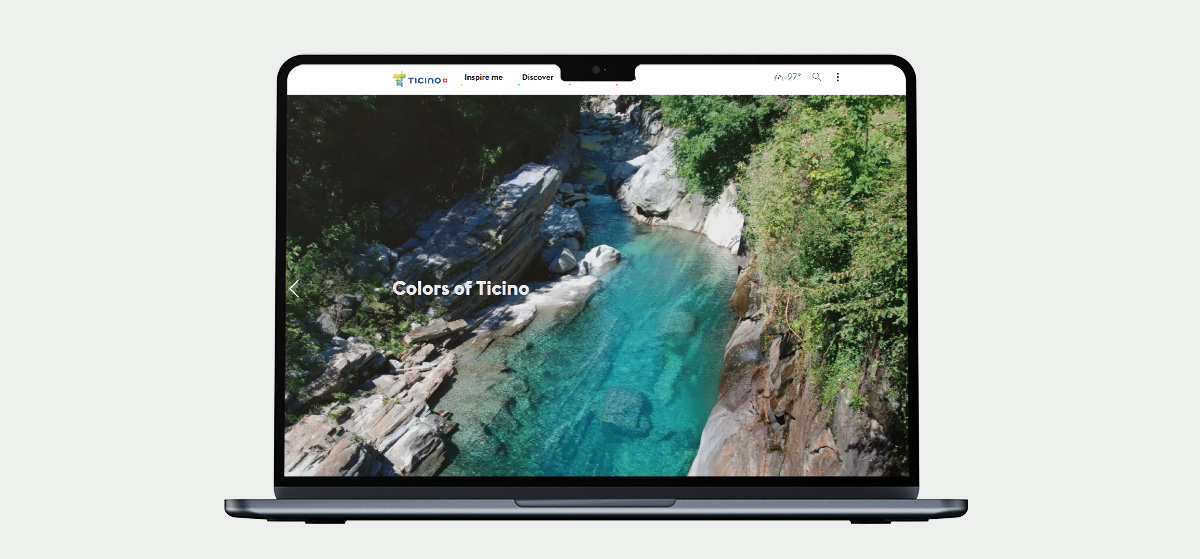
To promote tourism, Ticino encourages its visitors to subscribe to its newsletter and sends personalized content, such as relevant events, experiences, and vacation ideas, to their emails.
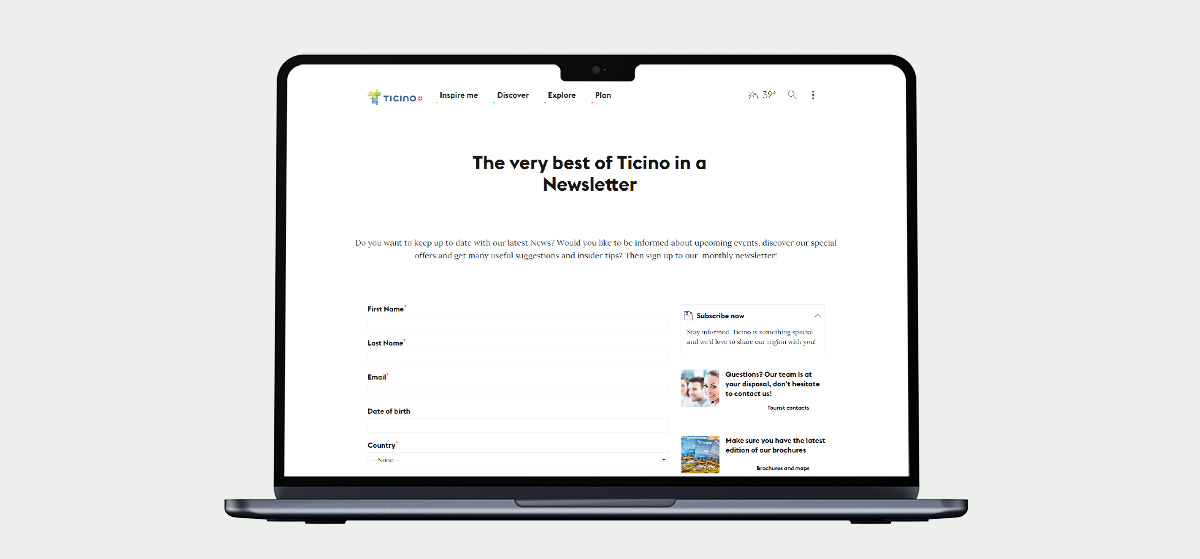
Ticino's system of providing helpful information to its visitors through many channels has driven tourism growth in Ticino, Switzerland, and helped them gain more significant goodwill from local tourist boards and hotel associations.
Luca Preto, Online Manager at Ticino Turismo, had this to say about Magnolia:
"Magnolia allows us to offer personalized experiences to our users, and the integration of social network tools gives us the opportunity to merge structured and editorial content. The current website speaks directly to current and prospective tourists, providing the information they need in an appealing new multichannel experience."
Alior bank
Magnolia is the driving force behind Alior Bank’s website. With Magnolia, Alior Bank created personalized versions of the same pages, providing relevant information to specific target groups. Statistical tools helped Alior Bank to verify user journeys, get insights about which pages are visited often, optimize content, and create better sales solutions.

With a semantic search engine integrated into the website to predict and suggest words and phrases, Alior Bank also lets visitors look up information and intuitively find relevant results.
Ewa Krassowska, Marketing Manager at Alior Bank, had this to say about Magnolia:
"Thanks to Magnolia and its features, our website’s visitors are now more likely to choose our offer because they receive relevant content and personalized information. Instead of showing them the product we want to sell them, we can suggest the product they need, based on their previous visits."
Measuring the impact of ecommerce personalization efforts
McKinsey’s Next in Personalization Report hows that companies that capture more value from personalization grow faster. The research suggests that even small shifts in improving customer intimacy create competitive advantage—and these benefits grow with maturity.
While implementing ecommerce personalization, understanding the effectiveness of strategies implemented and making data-driven decisions for continuous improvement is crucial. Here are some key aspects to consider when measuring impact:
Conversion rates
By comparing conversion rates before and after implementing personalization strategies, you can determine if there has been an improvement in converting visitors into customers. A higher conversion rate indicates personalized experiences resonate with your customers and drive more successful transactions.
Average Order Value (AOV)
Personalization can also impact your average order value. By analyzing whether customers are making larger purchases or adding more items to their carts due to personalized recommendations or incentives, you can assess the effectiveness of your strategies. An increase in AOV signifies that personalized experiences influence customers to spend more during their shopping journey.
Customer engagement metrics
Monitoring customer engagement metrics, such as time spent on your website, page views, and click-through rates, can provide insights into the level of interaction and interest generated by personalized experiences. Higher engagement metrics indicate that customers are actively engaged with customized content and recommendations, which can lead to a higher likelihood of conversion and retention.
Customer satisfaction and feedback
Gathering customer feedback through surveys or reviews can provide qualitative insights into their satisfaction with personalized experiences. This feedback can highlight areas of improvement or success and guide your further personalization strategies. Positive customer feedback indicates that your personalization efforts positively impact their shopping experiences and increase satisfaction.
Repeat purchase rate and customer retention
Tracking the repeat purchase rate and customer retention is essential for evaluating the impact of personalization on long-term customer loyalty. Personalized experiences that create a strong connection and meet individual needs are more likely to encourage repeat purchases and foster customer loyalty. An increase in repeat purchases and a higher customer retention rate indicate the effectiveness of your personalization efforts.
Revenue growth
Ultimately, you should measure your personalization initiatives' return on investment (ROI). Comparing the revenue generated from personalized experiences to the costs of implementing and maintaining personalization strategies can provide insights into the financial impact. Positive ROI and revenue growth indicate that your personalization efforts contribute to your business's overall success and growth.
Conclusion
Ecommerce personalization has become a powerful strategy for businesses like yours in today's online marketplace. By customizing the shopping experience based on your customer's preferences and behaviors, you can create meaningful connections, driving customer satisfaction, loyalty, and, ultimately, your business growth.
Customers currently not only expect a personalized experience, but they take it for granted. McKinsey research shows that 71% of consumers expect companies to deliver personalized interactions.
With Magnolia's robust features and capabilities, you can effectively implement various personalization techniques, from tailored product recommendations to dynamic website personalization and AI-powered content. Magnolia empowers you to deliver exceptional personalized experiences that resonate with your customers.
We invite you to read our personalization whitepaper to delve deeper into ecommerce personalization and learn how you can leverage Magnolia's capabilities to drive personalized customer experiences. This comprehensive resource provides valuable insights, best practices, and practical tips to help you unlock the full potential of personalized ecommerce.










